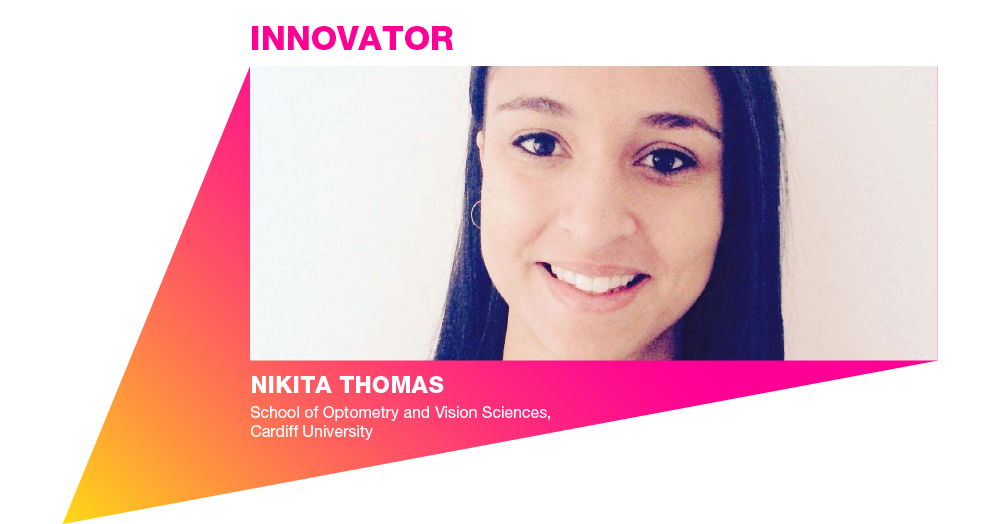Join a powerful, unprecedented alliance for better eye health for all.
Join IAPB-
Choose an alternate language here

Always engaging, professional and knowledgeable, Nikita Thomas is a very popular research delegate at the annual Nystagmus Network Open Day and a poised and eloquent presenter when delivering presentations to members of our patient group.
Nikita graduated with First Class Honours as an Optometry undergraduate and is now an exceptionally talented PhD student, who is about to submit her thesis. Given her background as a clinical optometrist, she has demonstrated remarkable aptitude as a scientist, recognising the importance of adhering to robust methodology for high quality research and quickly mastering programming skills. The trajectory of work and her development of innovative techniques in the course of her doctoral studies constituted excellent training, especially given the worldwide shortage of researchers with programming skills working on clinical problems related to eyecare. Nikita has consistently demonstrated strong potential for becoming an independent researcher. Early on, she made the transition to taking full responsibility for determining the direction of her project. Moreover, Nikita has already secured her first grant as a Principal Investigator (PI), and presented her work internationally (at ARVO), and independently prepared first drafts of manuscripts for publication.
Nikita’s work promises to have a significant impact on both the delivery of clinical eyecare and our understanding of the development of the human visual system. She has developed a perimeter (visual field) testing device that compensates for unstable gaze, thus enabling for the first time accurate measurement of light sensitivity across the retina in people with nystagmus. By continuously counteracting eye movements, this device will not only benefit those with nystagmus, but also facilitate visual field testing in the elderly, very young patients, and those with learning disabilities who normally have difficulty keeping their gaze fixed on a target. Using this device, Nikita has investigated visual sensitivity in people with infantile nystagmus, revealing that the distribution of foveal sensitivity is aligned with nystagmus eye movements. This potentially provides the first ever evidence for post-natal plasticity of the human retina, i.e. that the retina adapts in response to abnormal visual input. Previously, foveal development was believed to be hard-wired from birth. Nikita’s discovery – thanks to the remarkable technology she has developed – could therefore have a significant impact on our understanding of the human visual system.
“I have a deep-rooted passion for creating solutions that promote equality of access to standard optometric and ophthalmic clinical practices across different patient groups. This has involved transforming the commonly used method of visual field testing into a method that allows for accurate examination of the visual field in patients with voluntary and involuntary unstable fixation, such as nystagmus. I love that my role offers the freedom and flexibility to fully explore my own concepts and ideas, as well as the potential to make a worldwide impact on established clinical procedures.”
– Nikita Thomas